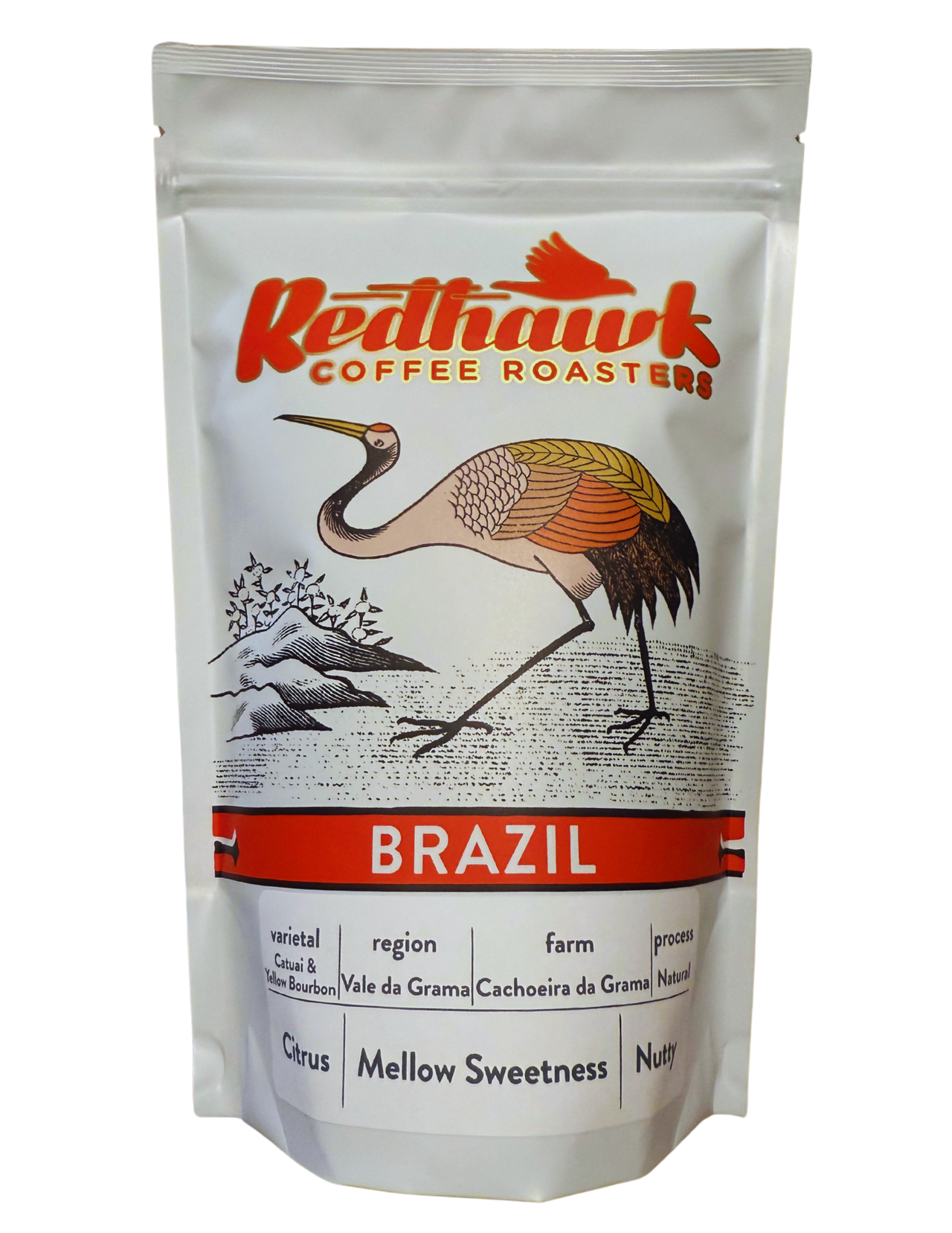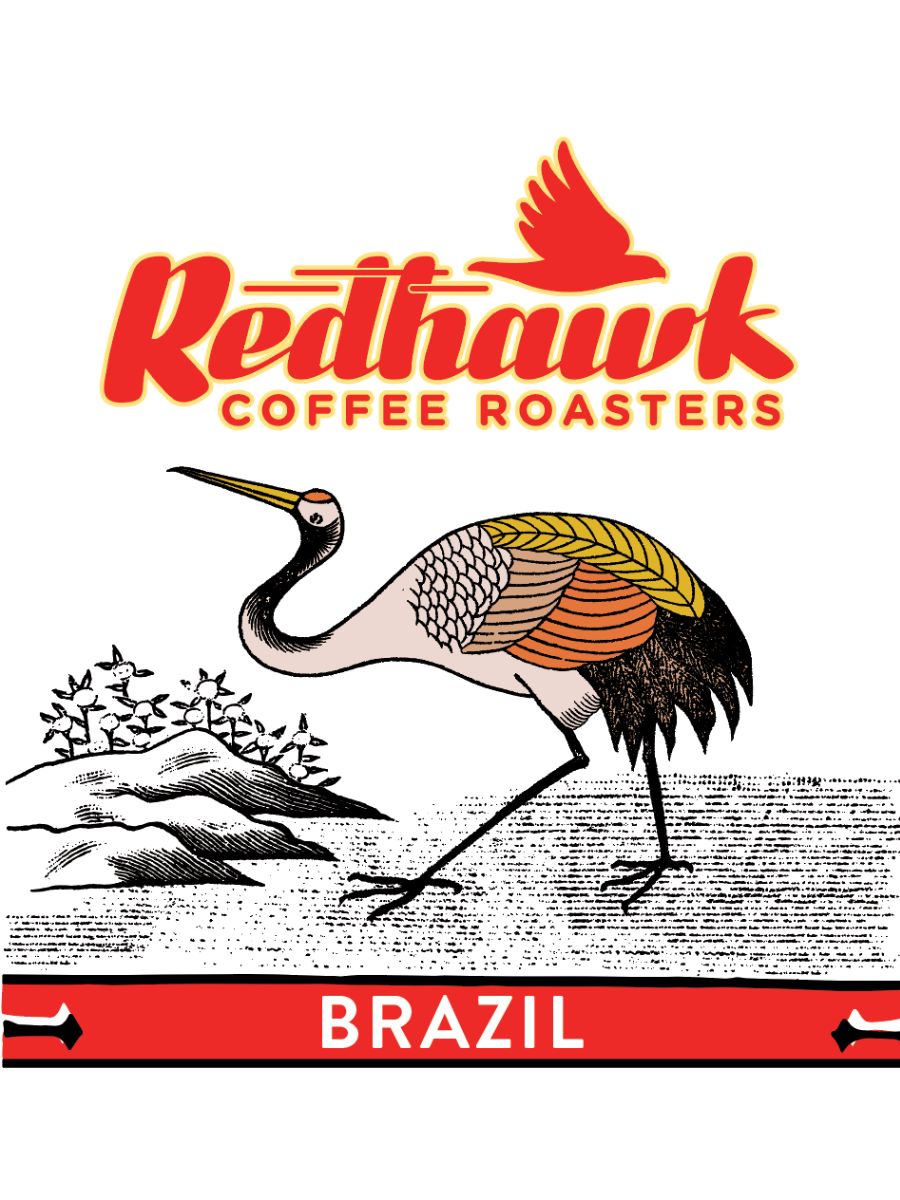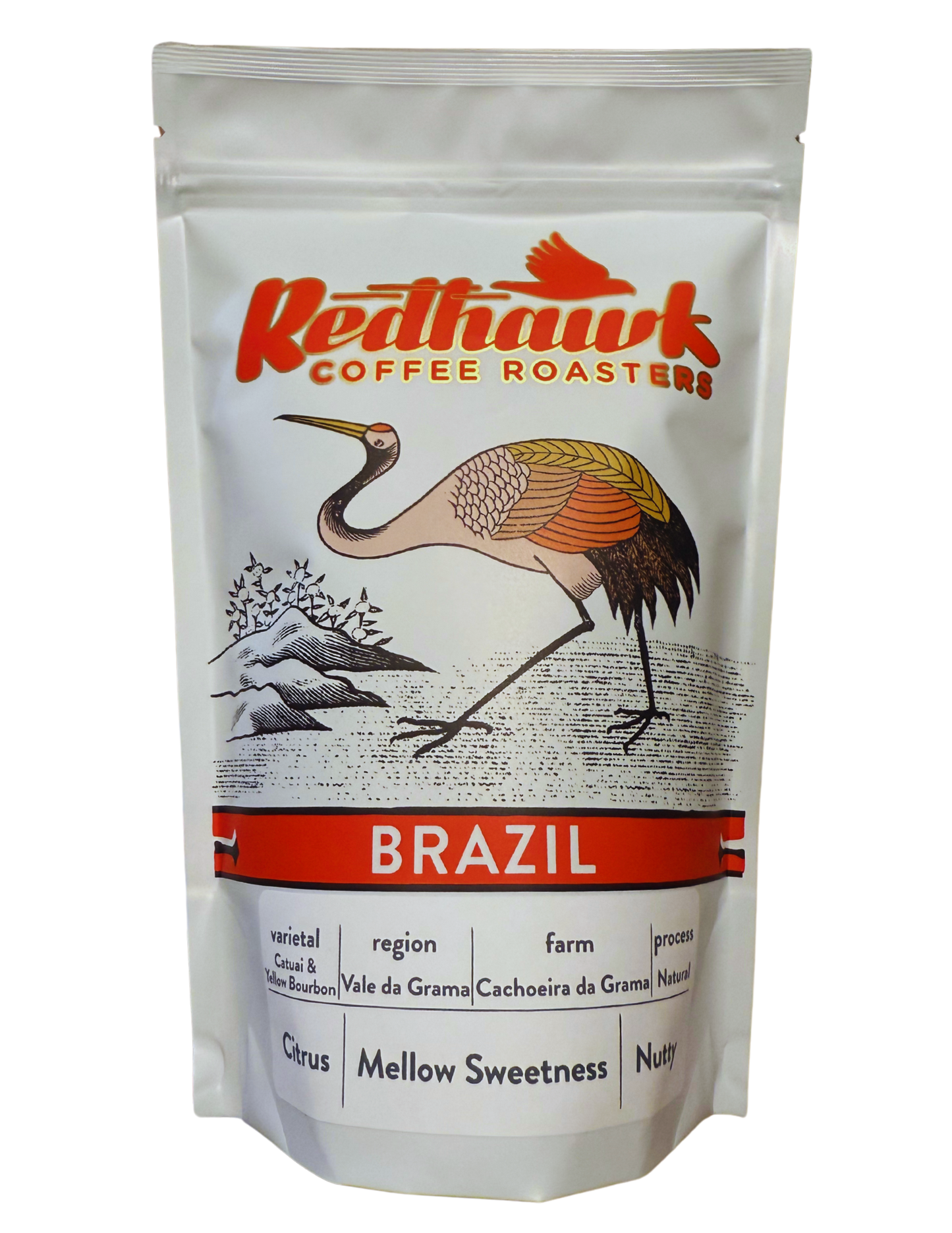- Region: Vale da Grama, Săo Paulo
- Farm: Fazenda Cachoeira da Grama
- Varietal: Common Brazilian Varieties
- Processing: Natural & Pulped Natural
- Elevation: 950-1150 masl
- Tasting Notes: Cocoa, Fresh Fruit, Mild Acidity and Sweetness

I want to
this coffee.
I'd like to get
delivered.
My grind is
Send me a package
Brazil São Paulo Fazenda Cachoeira da Grama
Fazenda Cachoeira de Grama is owned by the Carvalho family. The farm is located in Vale de Grama, which is home to some of Brazil's most "elite" coffee farms, and is an incredibly beautiful region, with rolling hills surrounding the coffee land. It's is a 411-hectare plot with about 100 hectares planted in coffee; they also grow eucalyptus nearby. There are 27 full-time and about 40 seasonal employees tending to the Catuai and Yellow Bourbon trees planted here, the oldest of which dates back to 1956! The farm has an on-site school for all employees' families to use, and there are about 300 children who take advantage of the services. The school is jointly funded by the Brazilian government and the farmers in the area.
São Paulo is just south of the Minas Gerais region and is very important to Brazil's economy contributing to nearly a third of the country's GDP and in the top three of coffee-producing regions. The two main areas of production, Mogiana and Centro-Oeste de São Paulo, are hilly, humid, semi-dry, subtropical areas.
The first coffee plants were reportedly brought in the relatively early 18th century, spreading from the northern state of Pará in 1727 all the way down to Rio de Janerio within 50 years. In 1820, Brazil was already producing 30 percent of the world’s coffee supply, but by 1920, it accounted for 80 percent of the global total. Since the 19th century, the weather in Brazil has been one of the liveliest topics of discussion among traders and brokers, and a major deciding factor in the global market trends and pricing that affect the coffee-commodity market. Incidents of frost and heavy rains have caused coffee yields to wax and wane over the past few decades, but the country is holding strong as one of the two largest coffee producers annually, along with Colombia. Brazil's post-harvest processing is also somewhat unique, and has been adopted largely in response to a combination of productivity, climate, and desired profile: Pulped Natural and Natural processing still dominates the industry here. Pulped Natural coffees are depulped and allowed to dry with their mucilage still intact; while Naturals are typically either dried on the trees before harvesting (called Boya) or picked and laid out on patios in order to finish drying before being hulled. Both processes tend to lend the coffees a nutty creaminess that has a more tempered fruit tone than the bright and acidic Washed or even Honey coffees we see elsewhere from Mesoamerica.
- Regular price
- $21.00 USD
- Regular price
-
- Sale price
- $21.00 USD
- Unit price
- per
| Minimum Cart Quantity | Discount | Wholesale Price |
|---|
| Minimum Cart Amount | Cart Discount |
|---|
Couldn't load pickup availability




